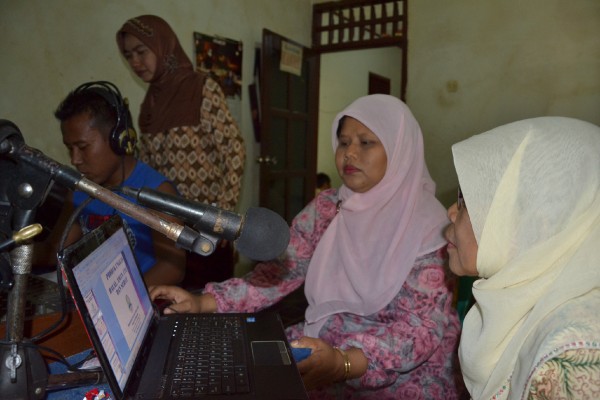Female preachers spread over thousands of islands are not usually included in ambitious behavior change initiatives focused on creating demand for healthy poultry products.
Nonetheless, this is precisely the unusual approach that the Strategies Against Flu Emergence (SAFE) project in Indonesia adopted, with impressive results.
SAFE is a response to Indonesia’s persistent problem: the highest number of human cases of H5N1 avian flu in the world, exacerbated by an 84% fatality rate spanning 31 of its 33 provinces.
Begun in 2011 by Development Alternatives, Inc. and the Johns Hopkins Bloomberg School of Public Health Center for Communication Programs (JHU∙CCP) with funding from USAID, SAFE works at all levels of the poultry value chain, including consumers. Within this latter group, SAFE strategically targets Muslim women. Muslim women are targeted because Indonesia is the world’s most populous Muslim-majority nation and its women traditionally purchase and prepare the food for their families. For these reasons, messages about selecting fresh poultry products, handling poultry properly and good sanitation behaviors are being integrated into sermons and other religious activities delivered to women by female members of one of the country’s largest Islamic organizations.
SAFE believes that increasing women’s knowledge about safe poultry will educate and empower them to make healthy poultry selection, handling and preparation decisions and will thus reduce the transmission of avian flu.
The strategy has been a success. More than 80 female preachers have received the SAFE training and have, in turn, shared messages about how to reduce the risk of transmission of avian flu to more than 6,000 other Muslim women in the past four months. The number of trained female preachers increased exponentially when Aisiyah Muhammadiyah, an Islamic women’s organization, held its national meeting in October 2012 which was attended by hundreds of other female preachers representing all 33 Indonesian provinces.
SAFE is also relying on strategic behavior change communication campaigns targeting poultry workers and consumers to spread its messages about reducing the risk of avian flu. Designed by JHU∙CCP, these campaigns are being implemented using a variety mass media channels, including public service announcements on radio and radio talk shows, Facebook, Twitter and multiple websites.
In addition, SAFE’s messages include health care seeking behavior if acquisition of avian flu is suspected, as well as supplementary strategic and sustainable activities taking place on poultry farms and in local markets.
SAFE is a three-year project supporting the Indonesian Avian and Pandemic Influenza Program to reduce the impact and transmission of avian flu to animals and humans and to limit the emergence of a pandemic influenza virus.





